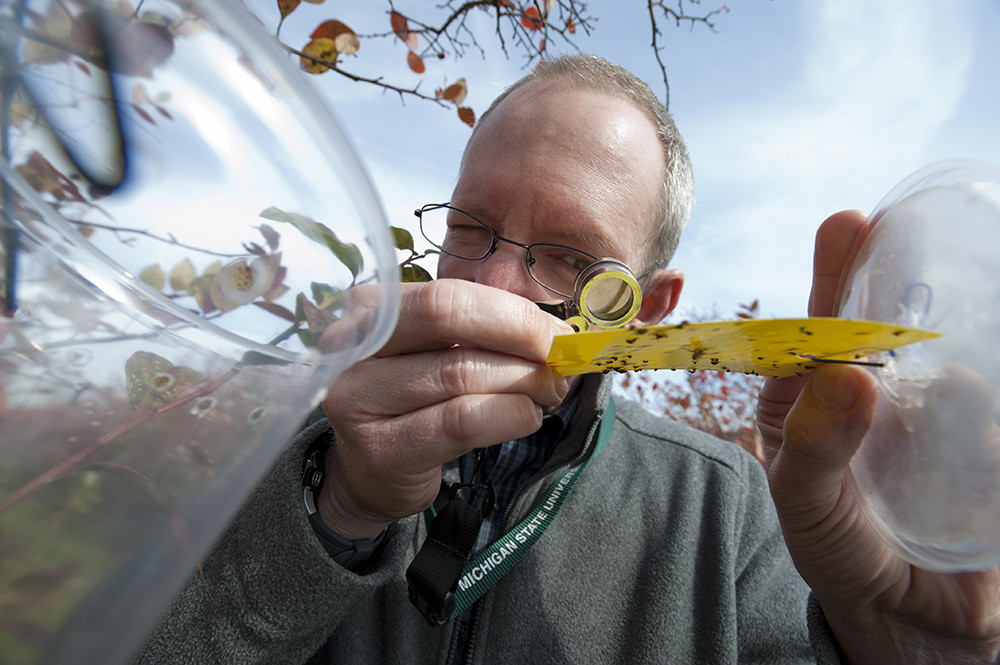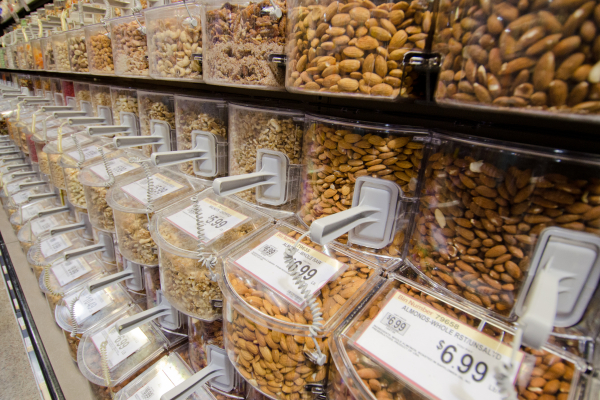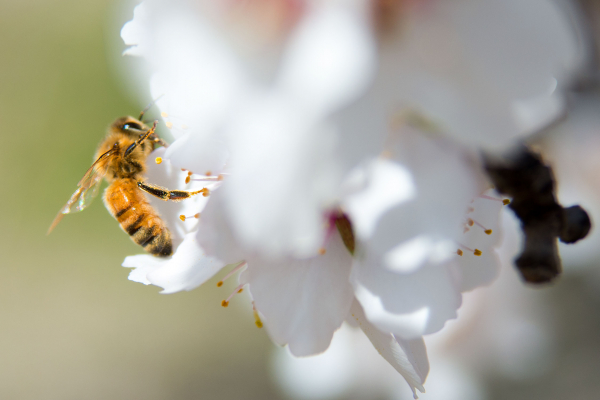Boosting Bees: Improving bee health to benefit farmers

PROBLEM
- Declines in pollinators, such as bees, can impact fruit and berry production.
SOLUTION
- Develop the most comprehensive and up-to-date picture of bee diversity, abundance, and health in Michigan to inform and implement recommendations.
Michigan has an extraordinary 465 known species of bees. These species play different roles and are vital for pollinating apples, blueberries, cherries, cucumbers, squash, and many other crops. Unfortunately, habitat loss, bee parasites, and pesticides are making life difficult for bees, and populations of key species have declined over the past few decades.
Because pollinators are critical for the production of most berry crops, Dr. Isaacs and his transdisciplinary team investigate pollinator ecology and management, economic value, and benefits for agriculture. The group includes researchers experienced in honeybee management, wild bee ecology, and pest management. They also explore the interactions between landscape structure and insects, both natural enemies and pollinators, in Michigan farmland. This research is underway in fruit, field crops, and biofuel cropping systems.
The team studies the current state of pollinators to support Michigan fruit growers. Through the Great Lakes Pollinator Health Project, they sample pollinators across diverse landscapes, compare to current and past pollinator communities, and identify the importance of different stress on pollinators. The researchers also collaborate with berry, tree fruit, and vegetable growers to deliver Integrated Pest Management (IPM) programs for key insect pests, like Japanese beetle, grape berry moth and spotted wing Drosophila.
Through their extension program, the team reaches out to growers with practical information. They apply this research by developing effective, economical, and environmentally sound pest management strategies to minimize the impact of pests in fruit production and to improve the contributions of wild and managed bees. This informs producers’ decisions about insect management while improving farmers’ productivity, profit, and environmental safety.
My early training taught me that insects were fascinating but could be devastating. Helping farmers solve serious insect-related challenges made me realize how much goes into growing and delivering safe and profitable food. Those experiences laid the foundation for my research.”
– Rufus Isaacs
RESEARCHERS
- Rufus Isaacs, PhD, Michigan State University
- Kelsey Graham, PhD, Michigan State University
- Meghan Milbrath, PhD, Michigan State University
- Doug Landis, PhD, Michigan State University
- Zsofia Szendrei, PhD, Michigan State University
FUNDING
- USDA NIFA Hatch
- USDA NIFA Food Security Program
- USDA NIFA Specialty Crops Research Initiative
- MSU Project GREEEN


